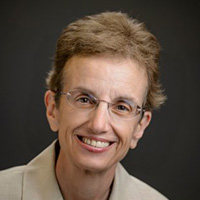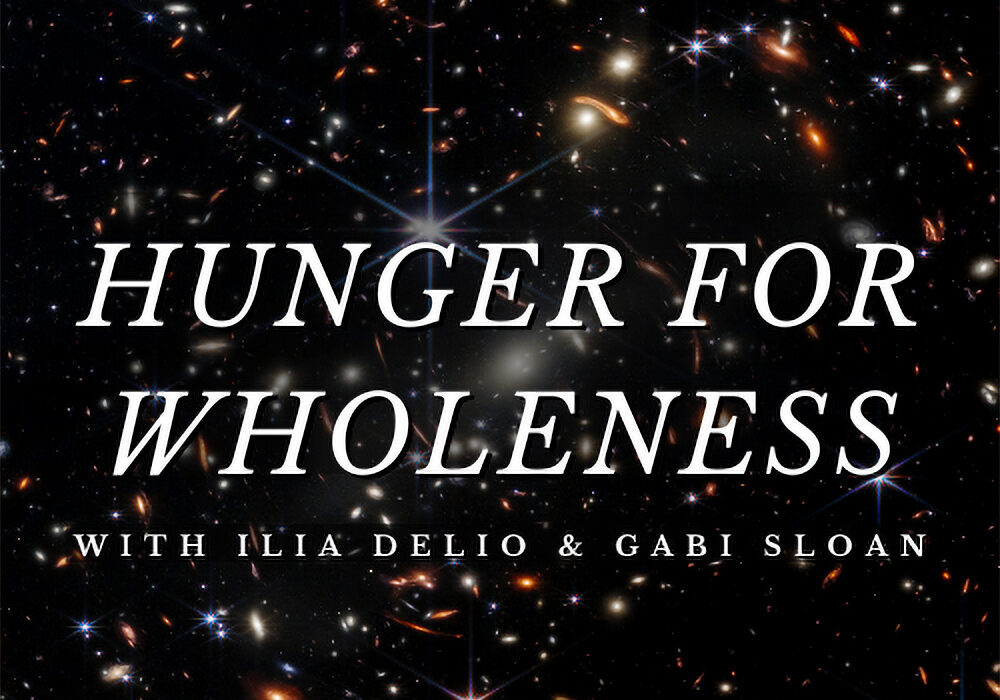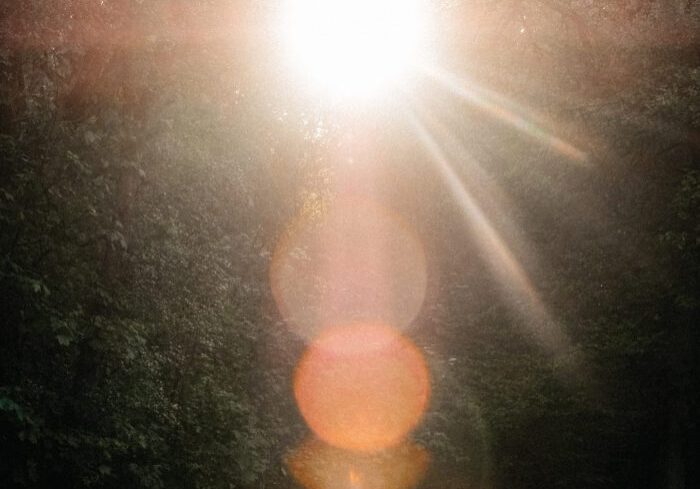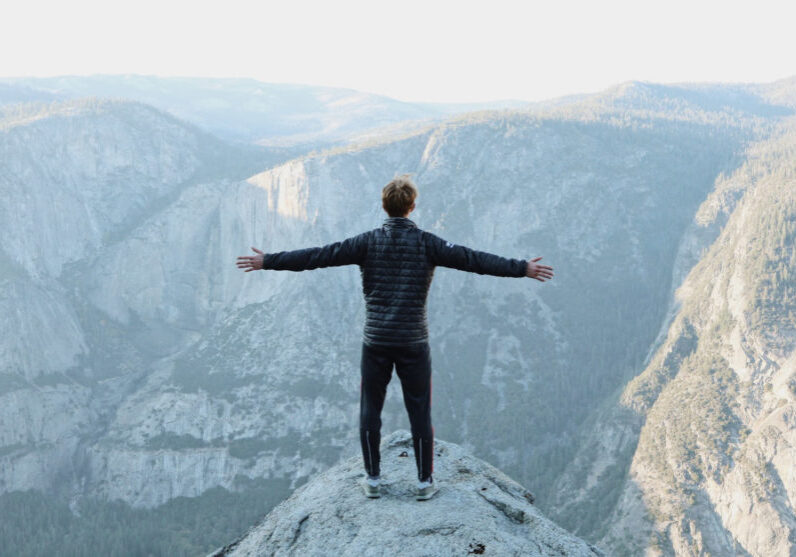Suffering and Pain in an Unfinished Universe
Q: How do we make sense of the profound suffering in our world? A woman wrote in to the Omega Center: “My life is consumed with managing basic functions (bathing, eating, etc), while experiencing constant pain and overwhelming weakness. My physical body demands my full attention just to get through the day, and I am homebound. I have virtually no energy to interact with others even though I long for deep connection. Given these limitations, and the fact that I live alone, how can I see/take part in ‘the bigger picture’? Is all suffering part of the evolutionary process? Is suffering ‘participating in Christ’s suffering’? Is it ‘participating in the suffering of humanity’?”
 Ilia: These are extremely important questions because suffering marks human life and we spend most of our lives trying to cope with enduring suffering, whether it is physical, psychological or emotional suffering. Suffering among teenagers today is becoming more prominent in the rise of suicide and depression while older people suffer physical debilitation and loneliness. Why do we suffer? Do we suffer alone? Can our suffering play a role in the ongoing process of Christogenesis? The Christian tradition (both Catholic and Protestant) holds the position that suffering, pain and death entered into the human sphere because of the sin of Adam and Eve. Prior to their act of disobedience, we enjoyed a state of primal happiness in relation to God.
Ilia: These are extremely important questions because suffering marks human life and we spend most of our lives trying to cope with enduring suffering, whether it is physical, psychological or emotional suffering. Suffering among teenagers today is becoming more prominent in the rise of suicide and depression while older people suffer physical debilitation and loneliness. Why do we suffer? Do we suffer alone? Can our suffering play a role in the ongoing process of Christogenesis? The Christian tradition (both Catholic and Protestant) holds the position that suffering, pain and death entered into the human sphere because of the sin of Adam and Eve. Prior to their act of disobedience, we enjoyed a state of primal happiness in relation to God.
The doctrine of original sin was developed by Western Christianity, from Paul through Augustine and beyond, to cope with the problem of evil. Original sin pertains both to the sin committed by Adam and Eve and the consequence of this first sin. In the words of St. Augustine: “The deliberate sin of the first man is the cause of original sin.”[i] The doctrine of original sin was defined at the Council of Trent and reaffirmed at Vatican II. Teilhard de Chardin could not accept the Church’s monogenetic position on original sin (sin due to a single human couple), since it opposed evolution as the process by which the human person develops.The problem with original sin, according to Teilhard, is its construction in a static universe. He wrote: “Original sin, taken in its widest sense is not a malady specific to the earth nor is it bound up with human generation. Rather original sin is simply the “law of imperfection which operates in mankind in virtue of its being in fieri” (becoming) that is, the human person is incomplete because we are still in the process of being created; we are creatures in evolution.[ii] For Teilhard, there is no first Adam. The name disguises a universal and unbreakable law of reversion or perversion in a universe that operates according to law, chance and deep time. [iii] To be clear, Teilhard did not deny the reality of sin; however in an evolutionary universe it is not possible to speak of an origin of sin from a single human couple (monogenism). According to Robert Faricy, Teilhard thought that “at every level—preliving, living, reflectively conscious—it is impossible that there not be some disorder or lack of organization in a multiplicity that is progressively moving toward a higher degree of organization.”[iv]
This “naturalization” of sin can disturb us especially if, from a faith perspective, we claim that creation is created out of divine love and is sustained by God. The missing piece, in my view, (and a weakness in Teilhard’s doctrine) is a reformulation of original sin and the central role of Jesus Christ. Although Teilhard rejected monogenism, I think we can identify an origin of sin in the human evolution of consciousness that has lead to moral disorder and evil. John Cobb speaks of a “fall upwards” into higher levels of consciousness, and in this respect, the emergence of symbolic language and free will can account for moral rejection and disorder. It is in this respect that Jesus signifies a new structure of existence, a new unitive consciousness of God’s presence and of being in love. In Karl Rahner’s words, Jesus is the great “yes” to God’s gift of grace. He lived out of a deep center of love and an inner freedom that drew him to offer his life in sacrifice on the cross.
Teilhard did not develop a theology of the crucified Christ, yet one could see areas of his writing where the cross plays a profound role in evolution. In his Divine Milieu he makes it clear that he espoused no cheap optimism but a wrenchingly honest acknowledgement of our human predicament and an unfailing fidelity to seeing God in every aspect of the earth, even in our human suffering. He wrote:
Ah, you know it yourself, Lord, through having borne the anguish of it as a man: on certain days the world seems a terrifying thing: huge, blind, and brutal . . . At any moment the vast and horrible thing may break in through the cracks—the thing which we try hard to forget is always there, separated from us by a flimsy partition: fire, pestilence, storms, earthquakes, or the unleashing of dark moral forces—these callously sweep away in one moment what we had laboriously built up and beautified with all our intelligence and all our love. Since my human dignity, O God, forbids me to close my eyes to this . . . teach me to adore it by seeing you concealed within it.[v]
In Teilhard’s view suffering and sacrifice are intertwined, a position consonant with Jürgen Moltmann for whom the death of Jesus is the revelation of God’s love. In the mystery of the cross, Moltmann wrote, we find God deeply immersed in suffering. The letting go of the Father and the surrender of Son gives rise to the Spirit who is the bond of love and the breath of God open to the future. God’s letting go out of love for the sake of new life reflects both the nature and freedom of God. The cross signifies a God who is radically in love with the world and this love bears within it the ultimate sacrifice of God’s Son for the world. Love is the Godness of God which is why the cross is the most revealing statement about God, as Moltmann wrote: “All that can be said about God is said in the cross.”[vi] The power of divine Love, therefore, is shown in the powerlessness of the cross. In the words of Cardinal Walter Kasper: “God need not strip himself of his omnipotence in order to reveal his love . . . Only an almighty love can give itself wholly to the other and be a helpless love.”[vii]
The incarnate God revealed in Jesus Christ is not remote to the sufferings of the world; rather God is immersed in a suffering world. While God cannot suffer ex carentia since God cannot lose what pertains to God’s integrity, God suffers ex abundantia: out of the divine plenitude God suffers out of love for us. God shares our pain and bears our burdens out of the divine fullness of love.[viii] God empowers the world through the suffering of love. Hence, “there is no suffering that is not God’s suffering; no death which has not been God’s death in the history on Golgotha.”[ix] God suffers in and with creation so that we do not suffer alone.This compassionate presence of God is the hope and source of the world’s becoming.
From a Christian perspective, the crucified Christ stands as symbol of the world’s openness to its completion in God. God suffers in and with creation so that we do not suffer alone. Suffering is a door through which God can enter and love us in our human weakness, misery and loneliness. As we suffer loss, so too God experiences loss with us and in us; yet God is deeply present in love. This compassionate loving presence of God is our hope and source of fulfillment; indeed it is the key as to whether or not our suffering participates in the ongoing evolution of Christ. For if we suffer in and with God and God suffers in us then we live in the hope that our suffering can be transformed into love by leaning into God as the power of the future.
Deep relationship with God is deep trust that our fragile lives have meaning in the ongoing evolution of life. However if we feel cut off from life and live in the isolation of our pain, then we withdraw from the power of love and lose the creative dimension of suffering. Without the sacrifice that higher love demands, we are isolated in our pain and continue to suffer in our isolation. For the pain in suffering, Moltmann writes, “is the lack of love, and the wounds in wounds are the abandonment [of love].”[x] Without prayer and awakening to the hidden presence of God in our suffering, we can feel cut off from the vitality of life. Hence the deep personal presence of God evokes a type of compassion that requires a conscious personal response.
It is my act of surrender that brings God’s indwelling Spirit to life within me. My act of surrender is an act of trust by which Saint Paul writes, “now it is not I who live but Christ who lives in me” (Galatians 2:20). In this mystery of trust and surrender is my hope that I will not die because God’s love is pulling me forward into a new future. Hence, my commitment to love is God’s commitment to love; my willingness to surrender in love is God’s willingness to surrender in love; my pain or sorrow is God’s pain as well. My suffering and sacrifice for others is, at the same time, God’s own suffering and sacrifice in me.
My hope comes precisely in the act of relinquishing control of my pain or sorrow, recognizing that I am not alone; that God suffers with me and in me. By surrendering to God I am one with the Son in his obedience to the Father and I am one with the Father in his surrender of the Son and thus I am caught up in the breath of God’s love and this love is always new. Hence despite my loss, I live on the cusp of new life because God’s love is the power of the future.
This deeper truth of suffering must lead me beyond a sense of loss to compassionate suffering; that is, a willingness to be sacrificial love for others. One who lives in God lives in others because it is in the other that God is found. Hence the key to sacrificial suffering is contemplation and a deep awareness of God’s hidden presence.
Teilhard felt that contemplative prayer and evolution belong together. The awakening of the mystic for the presence of the Sacred is the beginning of a new vision of reality, as Martin Laird writes:
This experience of the Sacred draws the mystic out of self into a new arena where the spiritual rhythms of Reality are rich and resonant. The mystic enters the center of a network of cosmic influences and is astonished at the depth and intimacy of relationship with the universe. In this arena, the mystic becomes aware that his or her fundamental duty and desire is to be united with God. But in order to be united the mystic must first of all be, and so the mystic sets out actively on a course of development.[xi]
In other words, only inner transformation can escape outer cosmic entropy and thus centrate energy on higher levels of complexity. Through inner transformation, the mystic nurtures a zest for life by becoming more inwardly whole, creating wholeness in the outer world, and drawing others into new levels of community. This inner transformation is the realization of personhood. Beatrice Bruteau states: “The more conscious the individual becomes, the more individual becomes person, and each person is person only to the extent that the individual freely lives by the life of the Whole.”[xii]
In his Divine Milieu Teilhard describes a little old woman praying alone in an abandoned chapel, a figure that could be identified with frailty, suffering, aloneness; yet she is deeply wrapped in prayer and Teilhard sees the whole universe evolving through her power of God-centered love. He writes:
The whole world [is] bound up and moving and organizing itself around that out-of-the-way spot, in tune with the intensity and inflection of the desires of that puny praying figure. The convent chapel had become the axis about which the earth revolved. (Divine milieu, 133)
So too suffering and the feeling of abandonment can be transformed into immense energies of love, participating in the ongoing evolution of Christ. Prayer helps us realize that we are not alone in our sufferings, that there is an Other—God—who suffers with us and in us. This God-centered suffering is the Christ in us—crucified and glorified—dying and rising in us. Our response rests on the hope that in an unfinished universe suffering and sacrifice are necessary for the ongoing evolution of life. To resist sacrifice or ignore pain is to suppress the vitality of life and its impulse to evolve. When we are beaten down and defeated, our tendency is to give up and declare life a failure. But if we search within, we will find God challenging us to get up and awaken to the sounds of a new future because this inner presence of God is the power of the future.
Notes
[i] Augustine, De nupt. et concup., II, xxvi. 43.
[ii] Pierre Teilhard de Chardin, Christianity and Evolution, 51.
[iii] Teilhard de Chardin, Christianity and Evolution, 40-41.
[iv] (1966: 556). Please check Robert Faricy’s article on Teilhard’s Theology of Redemption for notes 13 and 14.
[v] Pierre Teilhard de Chardin, The Divine Milieu, (Harper Perennial Modern Classics: 2001), 112. Emphasis added.
[vi] (1991: 205).
[vii] Walter Kasper, The God of Jesus Christ, 1999: 194-95.
[viii] Gregory Baum 2000: 235-36)
[ix] Jurgen Moltmann1991: 246
[x] 1991: 46.
[xi] Laird, “The Diaphanous Universe,” 219.
[xii] Beatrice Bruteau, “The Whole World: A Convergent Perspective,” in The Grand Option, 102.
 View print-friendly version
View print-friendly version
Related Posts

Hunger for Wholeness Podcast Launches!
Story matters. Our lives are shaped around immersive, powerful stories that thrive at the heart of our religious traditions, scientific inquiries, and cultural landscapes. All stories – big and small…

